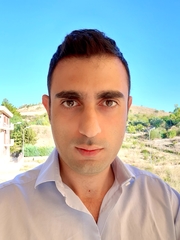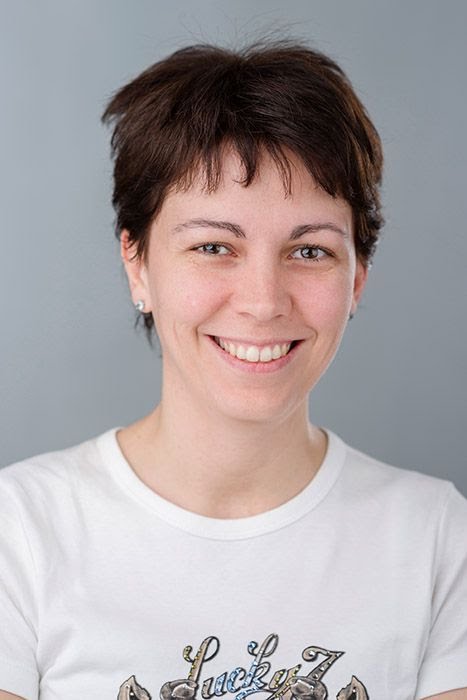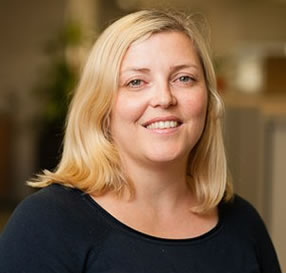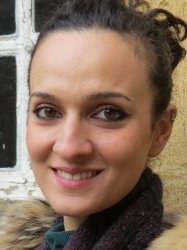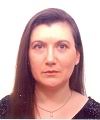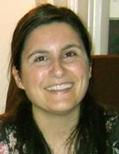Training and Research
PhD Programme Courses/classes - 2023/2024
Mathematical Statistics
Credits: 5
Language: English
Teacher: Catia Scricciolo
Microeconomics 1
Credits: 7,5
Language: English
Teacher: Simona Fiore, Claudio Zoli, Martina Menon
Continuous Time Econometrics
Credits: 5
Language: English
Teacher: Cecilia Mancini
Probability
Credits: 7,5
Language: English
Teacher: Marco Minozzo
Macroeconomics I
Credits: 7,5
Language: English
Teacher: Tamara Fioroni, Alessia Campolmi
Game Theory
Credits: 5
Language: English
Teacher: Francesco De Sinopoli
Mathematics
Credits: 4,5
Language: English
Teacher: Andrea Mazzon, Jonathan Yick Yeung Tam
Advice to Young Economists
Credits: 4
Language: English
Teacher: Marco Piovesan
Stochastic Optimization and Control
Credits: 5
Language: English
Teacher: Athena Picarelli
Financial Time Series
Credits: 5
Language: English
Teacher: Giuseppe Buccheri, Francesca Rossi
Mean Field Games (part I)
Credits: 2,5
Language: English
Teacher: Luciano Campi
Job Market Orientation
Credits: 1
Language: English
Teacher: Joan Madia, Simone Quercia
Discretization of Processes
Credits: 4,5
Language: English
Teacher: Jean Jacod
Topics in applied economics with administrative data
Credits: 1
Language: English
Teacher: Edoardo Di Porto
Multivariate Analysis with Latent Variables: The SEM Approach
Credits: 3
Language: English
Teacher: Albert Satorra
Financial Mathematics
Credits: 5
Language: English
Teacher: Alessandro Gnoatto
Political Economy
Credits: 4
Language: English
Teacher: Emanuele Bracco, Roberto Ricciuti
Finite Mixture Models in Health Economics: Theory and Applications
Credits: 1
Language: English
Teacher: Paolo Li Donni
Inequality
Credits: 4
Language: English
Teacher: Francesco Andreoli, Claudio Zoli
Behavioral and Experimental Economics
Credits: 4
Language: English
Teacher: Simone Quercia, Maria Vittoria Levati, Marco Piovesan
Health Economics
Credits: 4
Language: English
Teacher: Paolo Pertile, Catia Nicodemo
Development economics
Credits: 4
Language: English
Teacher: Federico Perali
Finance
Credits: 4
Language: English
Teacher: Giorgio Vocalelli
Mean Field Games (part II)
Credits: 2,5
Language: English
Teacher: Giulia Liveri
Stochastic Processes in Finance
Credits: 5
Language: English
Teacher: Sara Svaluto Ferro, Christa Cuchiero
Dynamic Corporate Finance
Credits: 2
Language: Englìsh
Inequality (2023/2024)
Academic staff
Referent
Credits
4
Language
English
Class attendance
Free Choice
Location
VERONA
Learning objectives
This 16 hours PhD module combines theoretical and empirical approaches to outline economic and statistics arguments for the analysis of economic inequality.
The objective of the module is to address two key questions, raised by two of the main contributors to modern inequality analysis, that systematically emerge in public economics and in the policy literature: the first question, addressed by Amartya Sen, is “Inequality of what?”; the second question, that stems from the lifelong research of Tony Atkinson, is “What can be done?”
The first part of the module focuses on the first question. We will define and document evidence about different notions of inequality that are intertwined with micro- and macroeconomic analysis: inequality of income, inequality across the life-cycle, inequality across and within groups (such as cohorts, generations, regions, families, genders, skills, human capital). The module will then survey and organize result son the normative underpinnings of measurement and analysis of inequality and related concepts, such as poverty, and social welfare. Empirical issues arising when implementing these models (data and inference) will be also discussed. The presentation will emphasize differences between unidimensional (such as in income or in health) and multidimensional inequality (based on the joint distribution of income and health, or inequality of income along the life course) and will investigate related phenomena, such as (ethnic and income) polarization, segregation, mobility, equality of opportunity.
The second part of the module will move from the analysis of distributions to that of redistribution of income or of endowments. The theory of (optimal) redistribution will be reviewed, drawing distinctions between implementation and expected effects on inequality of taxation and of targeted and universal (in kind and in cash) transfers. The module will focus on ex-post evaluation of the distributional impact of policies. We will review the identification of causal treatment effects along the whole distribution of an outcome, as well discuss implementation using distribution regression methods. Selected applications of these methods to the evaluation of the effects of early intervention (i.e. education and human capital reforms, the so-called “pre-distribution”) on inequality will be presented.
Prerequisites and basic notions
Econometrics, microeconomics
Program
Lecturers: Francesco Andreoli (12hours), Claudio Zoli (8hours)
Topics:
1) FA: Inequality of what? This lecture introduces evidence about inequalities related to income (cardinal variable), education (discrete variable) and skills (ordinal variable) across individuals and families, along the lifecycle, and across groups defined by the cohort, the region of residence, the family background, gender. It also surveys main data sources and empirical strategies adopted in analyzing inequalities.
2) CZ: Foundations of inequality measurement. The lecture will illustrate the basic principle behind the measurement of inequality and some of the more common criteria adopted in this framework, such as risk, social welfare, Lorenz curves, stochastic dominance.
3) CZ: From unidimensional to multidimensional inequality. Will be highlighted the main challenges related to the extension of the framework of analysis to multidimensional distribution. This is the case for instance when considering distributions of bundles of different goods or, as is the case for the Human Development Index, when combining evaluations based on the distribution of income, health and education across the population.
4) FA: Inequality and related concepts: This lecture deepens the analysis of alternative concepts of inequality, such as inequality of opportunity and will present presenting data sources and empirical results produced in the recent years, including a discussion about the relation between inequality, mobility and equality of opportunity (represented by the so-called Great Gatsby curve). The lecture will also analyze the relation between the distribution of income across individuals and in space (segregation).
5) FA: Causal analysis of intervention: from average to distributional impacts of intervention. This lecture will discuss the fundamental problem of causal identification and will outline the most interesting theoretical effects for policy evaluation (ATE, CATE, ATT, LATE, ITT and QTE). Identification results for these effects will be presented, with a specific focus on implementation using distributional regression methods (DiD, CiC, RIF, RIF-DiD, Quantile Regression). Reweighing methods for counterfactual analysis will be introduced.
Selected teaching material and references will be distributed during the lecures.
Students can have a broad overview of frontier research in inequality at the following links:
- http://dse.univr.it/it/index.php/past-events-mainmenu-43 (Lecture material from the Winter School on Inequality and Social Welfare Theory organized by the DSE)
- https://opportunityinsights.org/ (Harvard-based lab on spatial inequality in US)
- https://wid.world/ (PSE-based database about trends in income inequality)
- https://inequality.stanford.edu/ (Stanford-based inequality lab)
When and where
In-presence lectures.
Learning assessment procedures
Students presentation based on selected readings agreed upon with the teachers.
Assessment
Quality of the presentation; critical reading and discussion of the paper presented; adoption of appropriate terminology and tools.
Criteria for the composition of the final grade
Scele A+ to F.
Scheduled Lessons
| When | Classroom | Teacher | topics |
|---|---|---|---|
|
Wednesday 10 April 2024 14:00 - 17:00 Duration: 3:00 AM |
Polo Santa Marta - Sala Andrea Vaona (DSE) [1.59 - 1] | Claudio Zoli | Inequality |
|
Tuesday 16 April 2024 11:00 - 13:00 Duration: 2:00 AM |
Polo Santa Marta - SMT.01 [SMT.1 - terra] | Francesco Andreoli | Inequality |
|
Tuesday 16 April 2024 14:00 - 17:00 Duration: 3:00 AM |
Polo Santa Marta - Sala Andrea Vaona (DSE) [1.59 - 1] | Francesco Andreoli | Inequality |
|
Tuesday 23 April 2024 11:00 - 13:00 Duration: 2:00 AM |
Polo Santa Marta - Sala Andrea Vaona (DSE) [1.59 - 1] | Francesco Andreoli | Inequality |
|
Tuesday 23 April 2024 14:00 - 17:00 Duration: 3:00 AM |
Polo Santa Marta - Sala Andrea Vaona (DSE) [1.59 - 1] | Francesco Andreoli | Inequality |
|
Tuesday 07 May 2024 10:00 - 13:00 Duration: 3:00 AM |
Polo Santa Marta - SMT.03 [SMT.3 - terra] | Claudio Zoli | Inequality |
PhD school courses/classes - 2023/2024
Please note: Additional information will be added during the year. Currently missing information is labelled as “TBD” (i.e. To Be Determined).
PhD students must obtain a specified number of CFUs each year by attending teaching activities offered by the PhD School.
First and second year students must obtain 8 CFUs. Teaching activities ex DM 226/2021 provide 5 CFUs; free choice activities provide 3 CFUs.
Third year students must obtain 4 CFUs. Teaching activities ex DM 226/2021 provide 2 CFUs; free choice activities provide 2 CFUs.
Registering for the courses is not required unless explicitly indicated; please consult the course information to verify whether registration is required or not. When registration is actually required, no confirmation e-mail will be sent after signing up.
Teaching Activities ex DM 226/2021: Linguistic Activities
INFORMATION: ENGLISH FOR ACADEMIC PRESENTATION SKILLS [Arts and Humanities]
Credits: 2,5
Language: English
INFORMATION: ENGLISH FOR ACADEMIC PRESENTATION SKILLS [Law and Economics]
Credits: 2,5
Language: English
INFORMATION: ENGLISH FOR ACADEMIC PRESENTATION SKILLS [Life and Health Sciences - 1 st Session]
Credits: 2,5
Language: English
INFORMATION: ENGLISH FOR ACADEMIC PRESENTATION SKILLS [Life and Health Sciences - 2 nd Session]
Credits: 2,5
Language: English
INFORMATION: ENGLISH FOR ACADEMIC PRESENTATION SKILLS [Natural Sci. and Engineering-1st Session]
Credits: 2,5
Language: English
INFORMATION: ENGLISH FOR ACADEMIC PRESENTATION SKILLS [Natural Sci. and Engineering-2nd Session]
Credits: 2,5
Language: English
INFORMATION: ENGLISH FOR ACADEMIC WRITING SKILLS [Arts and Humanities]
Credits: 2,5
Language: English
INFORMATION: ENGLISH FOR ACADEMIC WRITING SKILLS [Law and Economics]
Credits: 2,5
Language: English
INFORMATION: ENGLISH FOR ACADEMIC WRITING SKILLS [Life and Health Sciences - 1 st Session]
Credits: 2,5
Language: English
INFORMATION: ENGLISH FOR ACADEMIC WRITING SKILLS [Life and Health Sciences - 2 nd Session]
Credits: 2,5
Language: English
INFORMATION: ENGLISH FOR ACADEMIC WRITING SKILLS [Natural Sci. and Engineering-1st Session]
Credits: 2,5
Language: English
INFORMATION: ENGLISH FOR ACADEMIC WRITING SKILLS [Natural Sci. and Engineering-2nd Session]
Credits: 2,5
Language: English
Teaching Activities ex DM 226/2021: Research management and Enhancement
SEMINARIO AVANZATO SULLE RISORSE BIBLIOTECARIE PER LA RICERCA [Arts and Humanities]
Credits: 2,5
Language: Italian
Teacher: Donatella Boni
SEMINARIO AVANZATO SULLE RISORSE BIBLIOTECARIE PER LA RICERCA [Law and Economics]
Credits: 2,5
Language: Italian
Teacher: Luisella Zocca
SEMINARIO AVANZATO SULLE RISORSE BIBLIOTECARIE PER LA RICERCA [Scientific Area]
Credits: 2,5
Language: Italian
Teacher: Elena Scanferla
Teaching Activities ex DM 226/2021: Statistics and Computer Sciences
INTRODUCTION TO PROBABILITY (MODULE I)
Credits: 1
Language: English
Teacher: Marco Minozzo
INTRODUCTION TO PROBABILITY (MODULE II)
Credits: 1
Language: English
Teacher: Marco Minozzo
BASIC LEVEL STATISTICS
Credits: 2,5
Language: English
INTRODUCTION TO STATISTICAL INFERENCE
Credits: 1
Language: English
Validità e affidabilità delle misure e dei test diagnostici
Credits: 0,5
Language: English
Teacher: Alessandro Marcon
BASIC LEVEL STATISTICS
Credits: 2,5
Language: Italian
Statistical analysis with R - module I
Credits: 1
Language: Italian
Teacher: Erica Secchettin
Generalized linear models: logistic regression, loglinear model, Poisson model
Credits: 2
Language: English
Teacher: Lucia Cazzoletti
Disegno dello studio nella ricerca osservazionale e sperimentale
Credits: 1,5
Language: English
Teacher: Alessandro Marcon
Calcolo della numerosità campionaria in funzione di una precisione o potenza statistica prefissata
Credits: 1
Language: English
Teacher: Giuseppe Verlato
Introduzione alla meta-analisi per la ricerca biomedica (revisione della letteratura, raccolta dei dati, costruzione del database)
Credits: 1
Language: English
Teacher: Giuseppe Verlato
Applicazioni della meta-analisi in campo epidemiologico e medico
Credits: 1
Language: English
Teacher: Giuseppe Verlato
Analisi di sopravvivenza: test log-rank, curve di sopravvivenza di Kaplan-Meier, modello di regressione di Cox
Credits: 1,5
Language: Inglese - English
Teacher: Simone Accordini
INTERMEDIATE STATISTICS [Recommended for Human Sciences]
Credits: 2,5
Language: English
INTERMEDIATE STATISTICS [Tutti i corsi di studio]
Credits: 2,5
Language: English
Statistical analysis with R - module II
Credits: 2
Language: Italian
Teacher: Erica Secchettin
Teaching Activities: Free choice
PROTECTING PSYCHOLOGICAL WELL-BEING IN THE PHD PROGRAM: WHAT DO WE NEED TO CONSIDER FOR BEING A GOOD SCIENTIST: BEST PRACTICE AND THE ETHICS OF SCIENCE
Credits: 1
Language: inglese
Teacher: Paola Cesari
QUANDO LA RICERCA SI FA ETICA (PERCORSO ORGANIZZATO E FINANZIATO DAL TEACHING AND LEARNING CENTER DI UNIVR)
Credits: 2
Language: Italian
Teacher: Roberta Silva
IMPARA IL MARKETING DIGITALE
Credits: 1,5
Language: English
Italian Poetry abroad
Credits: 1
Language: Italiano
Teacher: Massimo Natale
COSTRUISCI IL TUO BUSINESS MODEL CANVAS
Credits: 1,5
Language: English
APPROCCI E METODOLOGIE PARTECIPATIVE NELLA RICERCA CON GLI ATTORI DEL TERRITORIO
Credits: 1,5
Language: Italian
Teacher: Cristiana Zara
DOING INTERVIEWS IN QUALITATIVE RESEARCH
Credits: 1,5
Language: English
Teacher: Chiara Sità
LA COMUNICAZIONE UMANISTICA: OPPORTUNITA' E RISCHI
Credits: 1
Language: Italiano
DIFFERENTIAL DIAGNOSIS OF DEMYELINATING DISEASES OF THE CENTRAL NERVOUS SYSTEM
Credits: 2
Language: English
Teacher: Alberto Gajofatto
IL SONNO E I SUOI DISTURBI: FOCUS SULLE PARASONNIE E I DISTURBI DEL MOVIMENTO IN SONNO
Credits: 1
Language: English
Teacher: Elena Antelmi
IMAGING TECHNIQUES FOR BODY COMPOSITION ANALYSIS
Credits: 1
Language: English
Teacher: Carlo Zancanaro
OPEN SCIENCE: THE MIGHTY STICK AGAINST "BAD" SCIENCE
Credits: 2
Language: English
Teacher: Alberto Scandola
THE EMPIRICAL PHENOMENOLOGICAL METHOD (EPM): THEORETICAL FOUNDATION AND EMPIRICAL APPLICATION IN EDUCATIONAL AND HEALTHCARE FIELDS
Credits: 2
Language: English
THE PATHWAY OF OXYGEN: CAUSE OF HYPOXEMIA
Credits: 1
Language: English
Teacher: Carlo Capelli
Faculty
 simona.fiore@univr.it
simona.fiore@univr.it
 tamara.fioroni@univr.it
tamara.fioroni@univr.it
 cecilia.mancini@univr.it
cecilia.mancini@univr.it
 andrea.mazzon@univr.it
andrea.mazzon@univr.it
 martina.menon@univr.it
martina.menon@univr.it
 marcella.veronesi@univr.it
marcella.veronesi@univr.it
 giorgio.vocalelli@univr.it
giorgio.vocalelli@univr.it
PhD students
No people are present. 40° Ciclo not started.
Loading...
Guidelines for PhD students
Below you will find the files that contain the Guidelines for PhD students and rules for the acquisition of ECTS credits (in Italian: "CFU") for the Academic Year 2023/2024.
Documents
| Title | Info File |
|---|---|
|
|
pdf, en, 334 KB, 19/04/24 |
|
|
pdf, it, 251 KB, 19/04/24 |
|
|
pdf, it, 283 KB, 19/04/24 |
|
|
pdf, en, 358 KB, 19/04/24 |

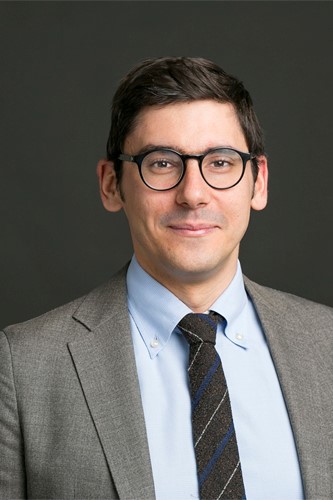
 045 802 8102
045 802 8102

